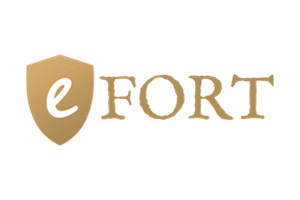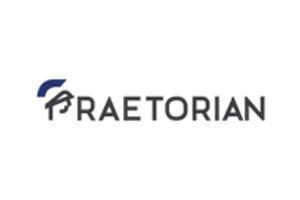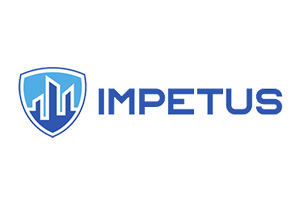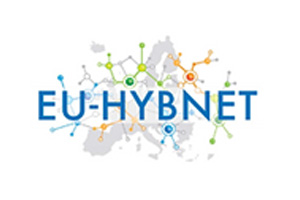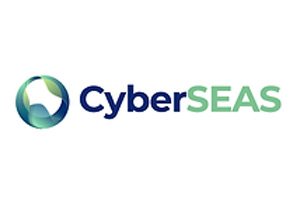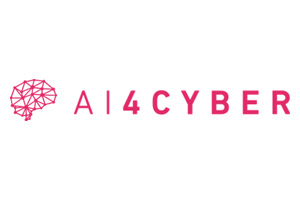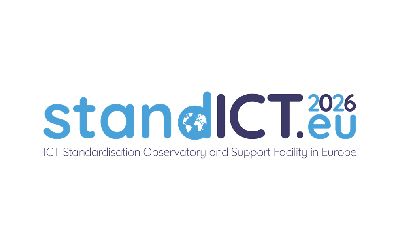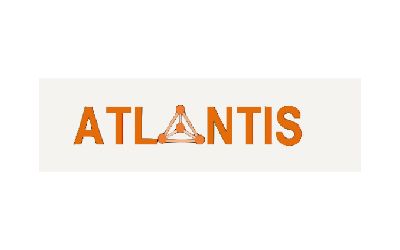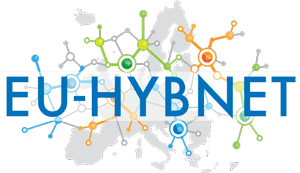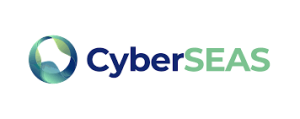European Cluster for Securing Critical Infrastructures (ECSCI)
SUNRISE is a member of the European Cluster for Securing Critical Infrastructures (ECSCI). In recent years, there have been increasing instances of cross-border crises, including climate change, natural disasters and global health threats. In these emergency situations, society’s critical infrastructures are crucial and therefore require large-scale planning for preparedness and response. The European Commission has recently funded many projects to work on different aspects of critical infrastructure protection, some of these projects have come together in the ECSCI cluster. While each project has distinct aims and challenges, they all work towards a common goal.
The ECSCI cluster will aim to create synergies and foster emerging disruptive solutions to security issues via cross-projects collaboration and innovation. Research activities will focus on how to protect critical infrastructures and services, highlighting the different approaches between the cluster’s projects and establishing close and productive connections with other closely related and complementary Horizon Europe projects.
The cluster will also organise international conferences and national or international workshops, involving both policy makers, industry and academic, practitioners, and representatives from the European Commission. Currently available results and publications can be accessed by clicking here.
For more information about individual projects you can visit their websites using the links below.
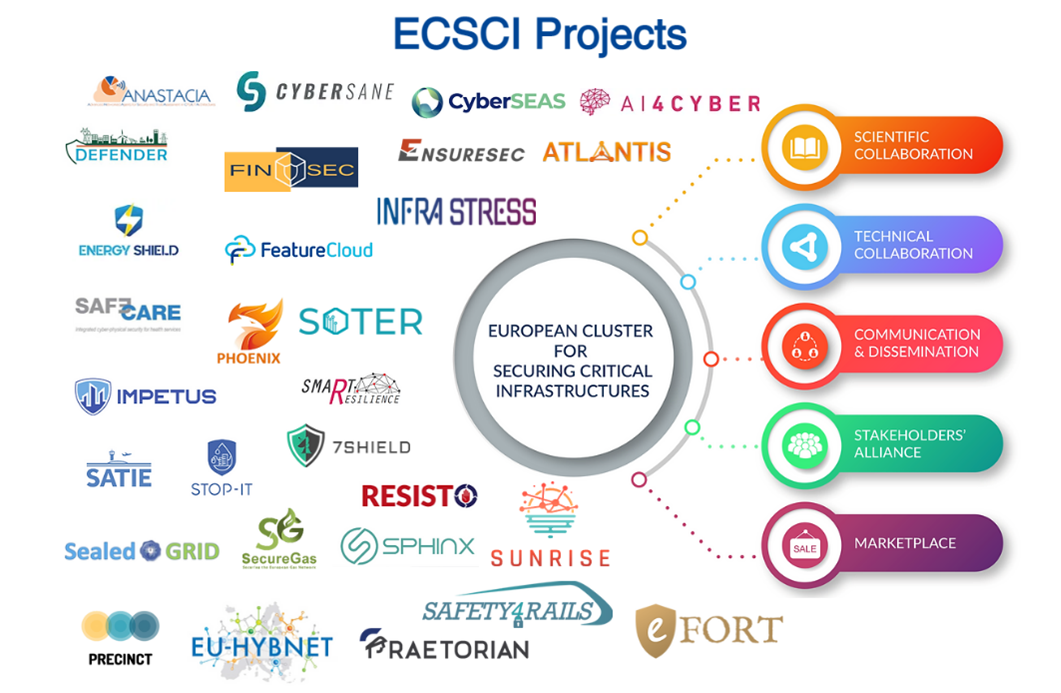
Partners in the Cluster:
active Projects in the Cluster:
Atlantis pROJECT
Improved resilience of Critical Infrastructures against large scale transnational and systemic risks
Description: Critical infrastructure sectors are of vital importance for the functioning of a society and economy – from energy and transportation to healthcare and food production. Their protection from all types of threats, including natural and synthetic, unintentional and with malicious intent, is top priority. In this context, the EU-funded project ATLANTIS is addressing resilience at the systemic level against major natural hazards and complex attacks that could potentially disrupt vital functions of the society. Bringing together 39 European partners with complementary roles and skills, ATLANTIS is improving the resilience and the protection capabilities of interconnected critical infrastructure exposed to evolving risks. It is also increasing resilience through novel, flexible, and customisable security measures and tools.
Duration: 3 years (October 2022 – September 2025)
Programme: Horizon Europe
Links:
• Website: https://www.atlantis-horizon.eu
• LinkedIn: https://www.linkedin.com/company/atlantis-horizon-europe-project/
ai4cyber
The AI4CYBER project is a EU funded-research project working in the areas of AI applied to cybersecurity and its main goal is to advance the state-of-the-art and offer an Ecosystem of new cybersecurity services in the areas of 1) AI-driven testing, 2) AI-powered detection and 3) SOAR.
Duration: 4 years (September 2022 – August 2025)
Programme: Horizon Europe
Links: • Website: AI4CYBER | AI4CYBER
• LinkedIn: (3) AI4CYBER: Overview | LinkedIn
efort
eFORT’s main objective is to contribute to modernising the electricity networks to reduce blackouts in both frequency and duration. Grid modernisation will also reduce the impact of disruptions and enable service being restored faster in the event of outages. It will also increase energy efficiency of locally produced renewables.
Duration: 5 years (September 2022 – August 2026)
Programme: EU Horizon Energy
Links:
• Website: About – eFORT (efort-project.eu) • LinkedIn: (1) eFORT project: Overview | LinkedIn
endurance
Strategies and Services for Enhanced Disruption Resilience and Cooperation in Europe
Description: The ENDURANCE project is a €5 million EU-funded initiative launched in October 2024 to enhance the resilience of Europe’s critical infrastructures against a wide range of risks, including cyberattacks, physical sabotage, human error, and natural disasters. With a consortium of 23 partners from 7 European countries—including competent authorities, infrastructure operators, and a health sector SME—the project focuses on developing interoperable solutions to strengthen defences. It aims to deliver advanced technologies, strategic frameworks, and robust methodologies to support rapid recovery from incidents.
Pilots will be carried out across Romania, Slovenia, Italy, and Greece to ensure the solutions are cross-sector and cross-border compatible. The project aligns closely with the CER and NIS2 Directives to harmonise efforts across EU member states. ENDURANCE promotes stronger cooperation between stakeholders, bridging gaps in preparedness and response. It addresses the growing vulnerabilities of interconnected systems that underpin essential services and economic stability.
Duration: 3 years (October 2024 – September 2027)
Programme: Horizon Europe
Links:
- Website: https://endurance-horizon.eu/
eu-hybnet
U-HYBNET (Empowering a Pan-European Network to Counter Hybrid Threats) project is funded by the European Union’s Horizon 2020 research and innovation programme under grant agreement No883054.
The project aims at enriching the existing European networks countering hybrid threats and ensuring long term sustainability. This will be achieved by defining the common requirements of European practitioners’ and other relevant actors in the field of hybrid threats. Ultimately, this can fill knowledge gaps, deal with performance needs, and enhance capabilities or research, innovation and training endeavours concerning hybrid threats.
Duration: 5 years (1 May 2020 – 30 April 2025)
Programme: Horizon 2020 Research
Links:
• Website: EU-HYBNET – Empowering a Pan-European Network to Counter Hybrid Threats (euhybnet.eu)
• LinkedIn: (2) EU-HYBNET: Overview | LinkedIn
StandICT.eu
StandICT.eu Invitative has been running since 2018 to support European ICT standardisation experts in their work in international standardisation organisations (SDOs). Under its current StandICT.eu 2026 Programme, the project runs 9 Open Calls offering direct funding for 300+ European professionals developing new ICT standards, revising existing ones or supporting the work of technical committees and working groups.
Duration: 3 years (January 2023 – December 2025)
Programme: Horizon Europe
Links:
• Website: | StandICT.eu 2026
• LinkedIn: (1) StandICT.eu: Overview | LinkedIn
finished Projects in the Cluster:
Precinct
The PRECINCT project provided a model-driven collaborative and unifying cyber-physical security and resilience management platform for smart resilient PRECINCTs, leveraging advances from CIP and INFRA-01 projects, as well as the extensive body of work in Urban and Critical Infrastructure protection and resilience management (RESILENS, DRIVER, RESOLUTE thus exploiting, evolving and embodying key outputs and knowledge gained into the PRECINCT models and services.
Duration: 3 years (October 2021 – October 2023)
Programme: Horizon 2020 Research
Links:
• Website: Precinct • LinkedIn: (1) PRECINCT | Groups | LinkedIn
Praetorian
PRAETORIAN strategic goal is to increase the security and resilience of European CIs, facilitating the coordinated protection of interrelated CI against combined physical and cyber threats. To that end, the project will provide a multidimensional (economical, technological, policy, societal) yet installation-specific toolset.
Duration: 3 years (June 2021 – September 2023)
Programme: Horizon 2020
Links:
• Website: H2020 PRAETORIAN – Protection of Critical Infrastructures from advanced combined cyber and physical threats (praetorian-h2020.eu) • LinkedIn: (1) PRAETORIAN H2020: Overview | LinkedIn
impetus
The IMPETUS project, a Horizon 2020 project funded by the European Commission, was an innovative project with the aim of enhancing the resilience of cities in the face of security threats in public spaces. IMPETUS provided city authorities with new means to address security issues in public spaces using data gathered from a city-wide lattice of cameras, environmental sensors and multiple interconnected AI systems that control key infrastructures within a Smart City. IMPETUS helped protect citizens against the unethical use of personal data and did facilitate threat detection by assisting with physical and cyber security management.
Duration: 4 years (September 2020 – February 2023)
Programme: Horizon 2020
Links:
• Website:Home (impetus-project.eu) • LinkedIn: (1) H2020 IMPETUS Project: Overview | LinkedIn
featurecloud
With FeatureCloud, we chair a pan-European transformative AI development project, which implements a software toolkit for substantially reducing cyber risks to healthcare infrastructure by employing the world-wide first federated all-in-one approach, which has two key characteristics: (1) no sensitive data is sent through any communication channels, and (2) data is not stored in one central point of attack.
Duration: 5 years (January 2019 – January 2024)
Programme: Horizon 2020 Research
Links:
• Website FeatureCloud – Revolutionising Cloud Communication – FeatureCloud • LinkedIn: (1) FeatureCloud: Overview | LinkedIn
cyberseas
CyberSEAS (Cyber Securing Energy dAta Services) aims to improve the overall resilience of energy supply chains, protecting them from disruptions that exploit the enhanced interactions, the extended involvement models of stakeholders and consumers as channels for complex cyber-attacks, the presence of legacy systems and the increasing connectivity of energy infrastructures, data stores and services retailers.
Duration: 4 years (October 2021 – September 2024)
Programme: Horizon 2020 Research
Links: • Website: CyberSEAS | Homepage
• LinkedIn: (3) CyberSEAS Project: About | LinkedIn




